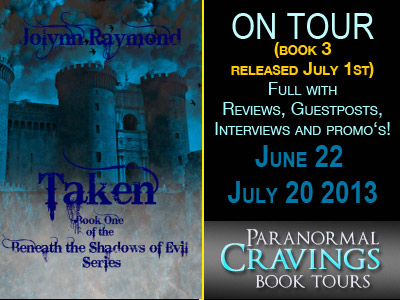Enter the associated giveaway with this tour here.
10 Tips For Becoming a Better Writer (Guest Post)
First I have to admit that I am an undisciplined writer. I don’t commit to a certain word or page count each day, in fact I don’t write every day. My day job is demanding and I simply don’t believe I write well when it’s forced. I have a love of writing, and I want to keep it that way. That doesn’t mean writing isn’t important, it most definitely is. I don’t want to sap the joy out of it by making it regimented. I will offer up my tips, but will say they may not work for everyone.
- Read – Reading books you enjoy expands your vocabulary and excite your imagination. I write fiction and while I don’t write in the same genre I tend to read, the books stimulate my mind and spark my desire to write.
- Pay attention to the style of authors you enjoy – While this may be difficult when you are engrossed in a story, I do try to think about details and the rhythm and flow of the book. Almost everyone knows there is the introduction, the build up, the crescendo, then the calm after the storms. I like to follow this pattern a few times in each story. That probably explains why some of my books are so long.
- Write with abandon – When I write, I just write. I go along with the flow and worry about typos, punctuation, and finding a better word of description for something later on. I just let my muse take over and write, heedless of the mistakes. Those can be seen to later.
- Read, read, and read again – After the initial creation, I go through what I wrote many times. Sometimes there is the pitfall of going over something obsessively and I do on occasion come to a point where I need to let go and allow my editor to take over, but I read what I wrote many time over to judge the impact and rhythm of the story.
- Accept criticism and other points of view – If someone has something to say about your writing either in a review or from an editing standpoint, listen without taking it personally. My stories are the compilation of hours and hours of work along with a lot of heart and soul, it can be hard not to get upset when someone is critical, but try to step back and listen with your brain and not your heart.
- Don’t turn your writing into a job – This does not mean you shouldn’t try to earn a decent living with your writing. I know in my case I do strive to keep the joy I first began with. My writing is my second job and perhaps I play a bit more freely because it doesn’t have to put food on the table, but creating pressure to write and writing with elation and wild abandon don’t go together.
- Find your perfect place – It can be in your home office, sitting in a comfy chair with your laptop, on the patio on a lounger, wherever your mind feels open the being creative and there are few distractions. There is nothing worse than being in the middle of the flow, you are there, in your story, you can picture it in your mind, and then something pulls you out.
- Talk out loud – I have conversations with myself playing both characters to work out scenes and make them make sense. Really, I do. I talk out loud in character. If it sounds right to your ear, it most likely will flow and make sense on paper. I remember a computer program that would read what you wrote out loud, not as you wrote it, but afterward as an editing aide. I can’t say I used it, but if I could remember what it was called I think it could be a valuable tool.
- Make the reader feel – It is a great compliment to me as a writer if I spark strong emotion in my readers. Joy, sorrow, empathy, fear, and even red-hot anger are all okay. If my words can make someone else feel, I am satisfied. If your characters don’t inspire your readers to care about them or feel hatred towards them, you have missed the boat.
- Do whatever works for you – As I said, I am undisciplined. I don’t create outlines, I rarely know how a book will end, I just begin with the spark of an idea from my muse and run in whatever direction she takes me. My muse is seldom wrong and I often find myself in a very different place than I had thought I would be. Most of the time it works out okay. Also, if I am at a loss and things just aren’t working themselves out, I just back off and do something enjoyable. Relax, read, take a nap, let the book go for a day or two, and the problem generally will work itself out. Does this mean I never have to back pedal or fix an original idea? No, but in general it’s for the best.
Happy writing to all,
Jolynn Raymond
Spread the love



